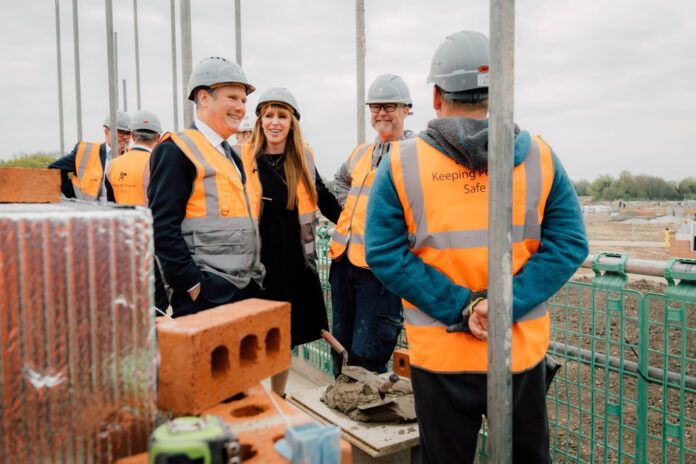The Federation of Master Builders (FMB) has addressed the Labour Government’s first 100 days after the party set out a range of ambitious plans during this time frame to drive economic growth through investment in new housing, upgrade existing homes, and to develop a skilled workforce but the body has warned that delivery will be key over the coming months and years if these plans are to succeed.
Brian Berry, chief executive of the FMB, said: “Labour’s ambition to drive economic growth is the right way forward and it is a breath of fresh air to see a government wanting to build. The need to build more homes has been tackled head on. Proposals to reform the creaking planning system has signalled a confident new approach. Delivering 1.5 million new homes will be a tall order and as pressure mounts it will be important for the government not to just focus on volume but also quality.
“Housing delivery needs to be organic as well as strategic if we are to create a diverse range of new homes built by large and small house builders. The fact that the Housing Minister acknowledged during the Labour Party Conference that the UK is too reliant on a small number of volume developers offers hope that we will have a more diverse housing industry.”
>>Listen to Brian discuss this more at the RCI Show 2024 with other industry experts.
He continued: “Whilst the commitment to build new homes is very clear, proposals to upgrade five million homes remain opaque. Where is the long-term ambition to improve our existing leaky, draughty housing stock? Retrofitting is a Labour manifesto pledge and a lever for growth, but it’s all gone very quiet over at DESNZ, seemingly pushed aside by plans for Great British Energy. The upcoming Budget is an opportunity for the government to commit to retrofitting the five million homes it stated in its manifesto, as this will really help to stimulate the market for the nation’s builders to adopt new green skills.”
Brian concluded: “Labour’s plans to drive economic growth are all dependent on having a growing workforce and there is concern that the new Employment Rights Bill places an unfair burden on small builders, who lack the back offices to support hefty changes to HR procedures. Beyond HR worries, the construction sector needs an additional 250,000 new people just to keep the lights on, let alone build 1.5 million new homes and retrofit five million more.
“The newly announced Skills England agency is a welcome initiative but, given it will take nearly a year to set up, will slow down delivery. The worry is that without getting to grips with the fundamentals of investing in vocational skills the dreams of economic growth may become unstuck. The drive for economic growth is undisputed, but it may be a slower journey than Labour first anticipated at the start of this new administration.”




